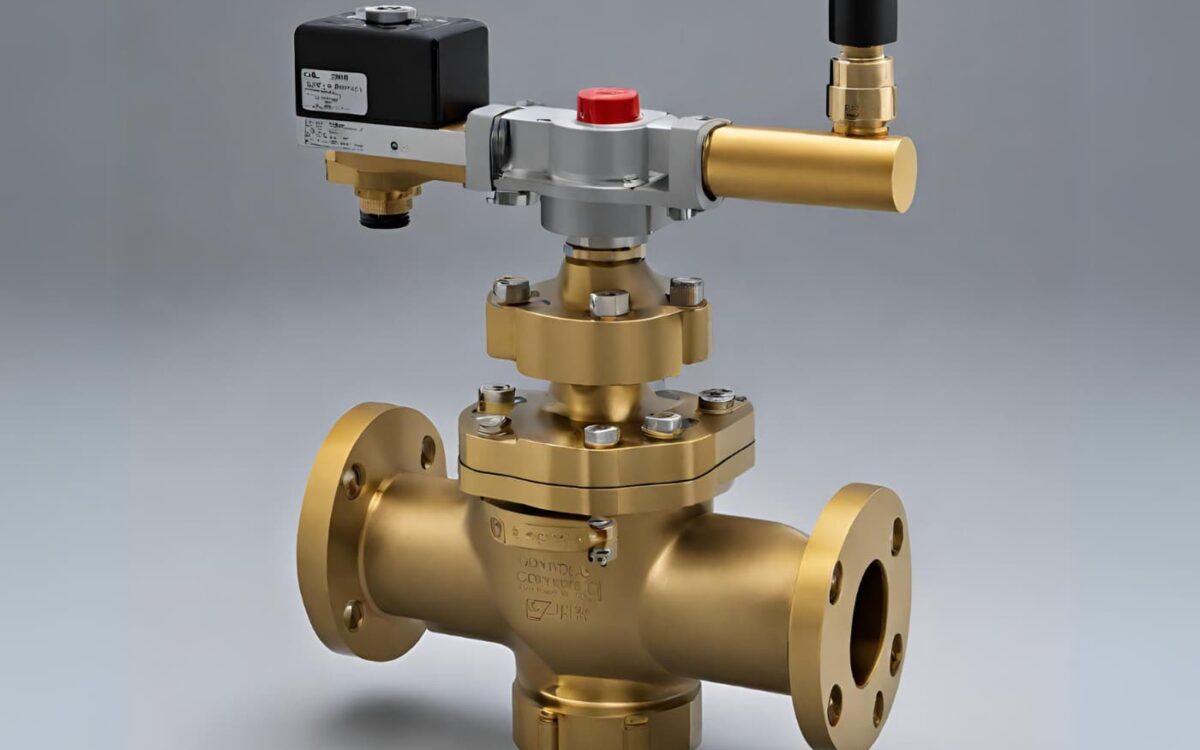Control valves are the unsung heroes of various industries, silently regulating fluid flow to maintain process stability. Among the prominent players in this field, Johnson Controls and Honeywell have made significant contributions. In this comprehensive guide, we will delve into the world of control valves, understanding their types, functions, and the critical role they play in industrial processes. While Johnson Controls control valves are leaders in the industry, our focus remains on the broader aspects of control valves.
Understanding Control Valves
Control valves are vital components that manage the flow of fluids within industrial systems. They serve the crucial function of regulating the flow rate, pressure, and temperature of liquids or gases, ensuring that processes run smoothly and efficiently. These valves are indispensable in a wide range of applications, from controlling the flow of steam in power plants to managing the temperature of water in HVAC systems.
Types of Control Valves
Control valves come in various types, each designed to meet specific operational requirements. Some common types include globe valves, ball valves, butterfly valves, and gate valves. Globe valves are known for their precise flow control capabilities, while ball valves are favored for on/off applications. Butterfly valves are suitable for processes with large flow requirements, and gate valves excel in scenarios where a tight seal and low pressure drop are essential.
Johnson Controls Control Valves
Johnson Controls is a renowned name in the world of control valves. With a rich history of expertise and innovation, the company offers a wide range of control valves designed for diverse applications. These valves find their place in industries such as HVAC, industrial automation, and building management systems. Johnson Controls control valves are known for their reliability and effectiveness in maintaining process control.
Honeywell Control Valves
Honeywell is another industry leader in control valve manufacturing. The company’s control valves are synonymous with reliability and innovation. Honeywell control valves cater to various sectors, including oil and gas, chemical processing, and aerospace. Their control valves are designed to meet the stringent requirements of critical industrial processes, ensuring smooth and precise control.
Control Valve Functions
Control valves perform a multitude of functions, making them indispensable in industrial settings. They can regulate fluid flow, control pressure, manage temperature, and maintain the desired level of liquid or gas in a system. By performing these functions, control valves ensure that processes run efficiently, products meet quality standards, and safety protocols are adhered to.
Industrial Applications
Control valves find applications in a wide array of industries, showcasing their versatility. From the oil and gas sector, where they manage the flow of crude oil and natural gas, to manufacturing, where they control various processes, control valves are instrumental in maintaining operations. HVAC systems rely on these valves to manage temperature and airflow, while the pharmaceutical industry utilizes them for precise dosage control.
Advancements in Control Valve Technology
The field of control valves has witnessed significant technological advancements. Modern control valves are equipped with smart features, including sensors and communication capabilities. These advancements allow real-time monitoring and adjustments, enhancing efficiency and reducing the risk of errors. Additionally, materials and coatings have been improved to ensure durability and resistance to corrosion, extending the lifespan of control valves.
Maintenance and Troubleshooting
Regular maintenance is essential to ensure the continued reliability of control valves. Inspecting valves for wear and tear, cleaning or replacing components as needed, and calibrating them for accurate control are essential tasks. Troubleshooting issues such as leaks, corrosion, or reduced performance promptly is crucial to minimize disruptions in industrial processes.
The Future of Control Valves
As industries evolve and embrace automation and digitalization, control valves are poised to play an even more critical role in the future. Here are some trends and developments that we can expect:
- Digitalization and Smart Valves: The integration of control valves with digital technologies is on the rise. Smart control valves equipped with sensors and communication capabilities enable real-time monitoring and data collection. This data can be analyzed to optimize processes, improve efficiency, and predict maintenance needs, reducing downtime.
- Energy Efficiency: With a growing focus on sustainability, control valves are being used to enhance energy efficiency. They help regulate energy consumption by optimizing processes and ensuring that resources like water, steam, and gas are used efficiently. This not only reduces operational costs but also contributes to environmental sustainability.
- Remote Monitoring and Control: The ability to remotely monitor and control control valves is becoming increasingly important, especially in industries with distributed operations. Remote access allows for adjustments and troubleshooting without the need for on-site presence, saving time and resources.
- Advanced Materials and Coatings: Continued advancements in materials science are leading to the development of control valves that are more resistant to wear, corrosion, and harsh environments. These improvements in durability extend the lifespan of valves and reduce maintenance requirements.
- Increased Integration: Control valves are being integrated into larger automation and control systems. This integration ensures seamless communication and coordination with other components in industrial processes, leading to improved overall system performance.
Conclusion
In conclusion, control valves are the silent heroes that play a vital role in various industries by regulating fluid flow, pressure, and temperature. While Johnson Controls and Honeywell are leaders in this field, the importance of control valves extends beyond individual brands. They ensure the efficiency, reliability, and safety of industrial processes, making them an integral part of countless applications across the globe. Understanding their types, functions, and future trends is essential for anyone involved in industrial automation and process control.
